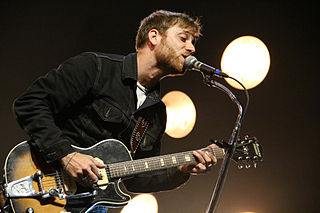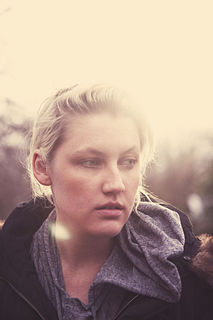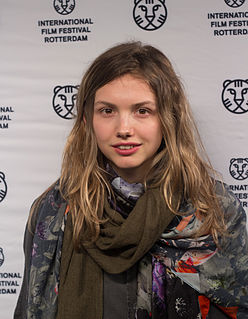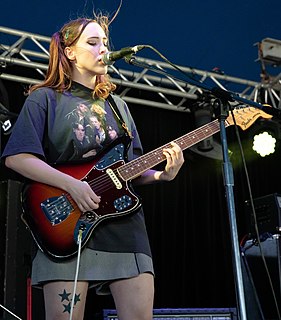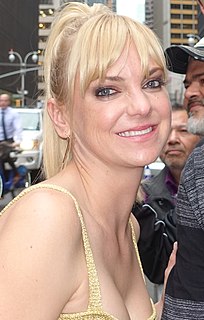A Quote by Rachel Morrison
You just sort of get used to being one of the only women on set, so it's really refreshing to start to enter a time when that's not the case anymore.
Related Quotes
My boyfriend's a musician, and I think when he's on stage is the only time he's not worrying. And so that's the reason he keeps doing it is because it gives him that sort of experience of weightlessness that I only get out of being sort of, deep into writing something or really lost in a moment on set, like it's available to me in these select moments through my work.
I used to be really nervous when I sang. Like, when I was a kid starting young, 18 and 19, and my dad really had to sort of push me to start singing in front of people. Ever since I got out there and really started doing it, the only thing I've ever tried to do is just sort of is be myself, you know, never put on a voice. Sing naturally.
Especially in entertainment geared toward young people, the women are much stronger than they used to be. There's not really the damsel in distress anymore. I think the stereotype still possibly lives in different genre pictures but, in entertainment for the younger generation, they're used to women being equal and being strong. I think if you don't portray that, it would be kind of weird.
What occurred to me on [‘The Curious Case of Benjamin Button’], and also with the passing of her mother, is that there's going to come a time when I'm not going to get to be with this person anymore. I'm not going to get to be with my children anymore. Or friends, people I love and respect. And so, if we have a flare-up, it evaporates now. I don't want to waste time being angry at someone I love.
I was really kind of miserable with myself personally and all of the things that you can be creatively, until someone said - and I don't know what about it made it click at this specific time - but they said, "You're not 18 anymore, and you're not writing songs in your old bedroom. It's work. You should get up every day and set a perimeter of time and start compartmentalizing your life."
If [Sean] doesn't see me a few days or if I'm really, really busy, and I just sort of get a glimpse of him, or if I'm feeling depressed without him even seeing me, he sort of picks up on it. And he starts getting that way. So I can no longer afford to have artistic depressions. If I start wallowing in a depression, he'll start coming down with stuff, so I'm sort of obligated to keep up. And sometimes I can't, because something will make me depressed and sure as hell he'll get a cold or trap his finger in a door or something, and so now I have sort of more reason to stay healthy or bright.
There still aren't enough[ roles for women of color]. And I'd say that's the case, not only for African-American women, but for all women in the Hollywood game. It's just slim pickings, and a very challenging time for us. I think that's why more of us need to work our way behind the camera in order to create roles that really illuminate who women are. We still have room for growth in that area, without a doubt.
We played around and improvised a ton [in The Hangover], and I think it's hard to say at this point what's what. Gosh, I wouldn't even know how to take a stab at it. The script was so good that we really didn't need to improvise very much, but I think we just found a lot of moments on the set. It's really cool when you get onto the set of a movie and you start shooting the scenes and you start to actually incorporate the environment.
L.A. is definitely a Marmite sort of place for me. I used to hate it, but now I love it. I think it really helps if you know the places and the restaurants and the nice bars to go to and if you have friends there. I've got some friends over there now, and they're not all actors, which is quite refreshing, and now I have a great time there.
The same is the case when you enter a womb, enter into a fresh body, and start the journey of desires. But if you die alert, in that alertness not only the body dies, all desires evaporate. Then there is no entering into a womb. Then entering a womb is such a painful process, it is so painful that consciously you cannot do it; only unconsciously you can do it.


